Consumer demand for functional food is helping to drive sales of speciality breads – as is continued interest in authenticity and natural products. These are both trends that pulses and ancient grains are well placed to tap
Ancient grains are hardly news to Britain’s baking industry – but suppliers are continuing to find new ways to use and market flours and mixes containing the oldest ingredients on the block.
These so-called ‘supergrains’ – and pulse-based flours (see p51) – offer bakers ways of tapping some of the biggest current health trends, including gluten-free and higher-protein foods.
And, vitally for a market under intense pressure from rising input costs, they can also offer higher selling prices and improved margins. According to Bakels, use of ancient grains can enable bakers to “easily” secure more than £2.50 for an 800g loaf.
Little wonder, then, that retail analysts Mintel state grain diversity will continue to shape the bakery category throughout 2017.
“Inclusion of ancient grains such as quinoa, millet, teff, buckwheat and chia represent a return back to a wholesome way of eating, which consumers are seeking and bakers can capitalise on,” Michael Schofield, marketing manager for Bakels tells British Baker. “Ancient grain breads meet the criteria of a healthy perception and great taste.”
Healthier breads
More bakeries are now using ancient grains to bake healthier breads, such as Northern Ireland’s Yellow Door Bakery.
“We’ve been researching ancient grains for use in new breads and are planning an addition to our existing sourdoughs and ryes,” says Simon Dougan, owner of Yellow Door Bakery. “We’ve noticed a move towards grain loaves and other breads regarded as healthier than some sliced white breads. We intend to step up production of these grain breads for all our markets, including the catering services we provide.”
Farmers are also embracing the demand for ancient flours, with Sedgefield-based Craggs & Co recently becoming the only large-scale producer of spelt flour grown, harvested, milled and stored in the UK that comes with the Red Tractor and TASCC seal of approval. Managing director Stephen Craggs has dedicated a large part of his 2,000-acre farm in Sedgefield to growing spelt wheat, and has invested in a Bühler dehulling plant.
“We first stumbled across this tasty ancient grain a couple of years ago when a local chef asked us to grow a small amount to supply her gastro pub and bakery,” he says. “Then, purely through word of mouth, we were inundated with requests from other local businesses.”
Artisan products
Consumers are looking for foods that are more authentic, which has driven interest in artisan products, according to CSM Bakery Solutions. This prompted the business to refresh its Pantique Ancient Cereals bread mix – changing its name to Ancient Grains Ultimate – and introducing new packaging.
“Ancient Grains Ultimate is a 50% mix that is perfect for artisan and craft bakers and enables them to feature ‘true’ ancient grains in their bread and rolls,” David Astles, bread ingredients product manager at CSM Bakery Solutions, tells British Baker. “Its unique ingredients include einkorn, the oldest-known bread grain, dating back to 10,000 BC, that has a unique nutty flavour, while emmer dates back to 8,000 BC. It is also known as Pharaoh’s Wheat and has a subtle, spicy flavour.”
Edme, meanwhile, produces blends and concentrates made from a range of cereals, pulses and seeds. These are available in off-the-shelf mixes or can be tailor-made to customer specifications. “Whether you are looking to create an artisan rye sourdough, a three-seed bagel or a heritage grain cereal bar, our technical team can work with you to develop the recipe and supply the mix,” says Edme sales director Mike Carr.
He adds that malted flours and flakes from wheat, rye and oats are wholegrain products and can provide the significant nutritional benefits of grains in their entirety, while enhancing taste, texture and colour.
Rich in fibre
Some of Edme’s mixes are seed-based, and include ingredients such as sunflower, pumpkin, poppy and chia that are rich in dietary fibre, protein and healthy fats – and contain antioxidants such as magnesium, iron and folate.
Wholegrains also offer a way of tapping the demands of health-conscious consumers. A study published in the Journal of Nutrition found that wholegrains lower the risk of heart disease in overweight and obese adults who are the under the age of 50. A group of 33 overweight and obese adults followed a wholegrain diet for an eight-week period that saw a threefold improvement in diastolic blood pressure.
Interest in healthy eating has made protein one of the key drivers of food development. Warburtons and Tesco have both recently launched protein-packed products – Tesco launched a 400g Finest loaf, while Warburtons unveiled an extensive Protein range including a wholemeal loaf, rolls, thins and wraps.
There is rising demand for high-protein products, according to Mintel, with 36% of new products claiming to be high protein. To be considered high protein, a product must provide 20% or more of its energy from protein. “The variety of high-protein products in the market is growing rapidly. To help to drive this trend, we can blend ingredients to appeal to an increasingly health-conscious public,” says Edme’s Carr.
Other functional messages are being used to woo bakery shoppers, with Marks & Spencer now adding fibre to its entire pre-packed bread range.
Given such shifts in the market, there is clearly plenty of opportunity for further developments in functional and speciality flours and mixes. As for the recently rediscovered ancient grains, they are far from ancient history.
How to get pulses racing
Pulse-based flours are being tipped for big things – and have attracted the attention of some of the industry’s major players.
The high protein content, neutral colour palette and consumer-friendly labels offered by pulse-based flours and proteins make them suitable for improving the nutritional profile of baked goods, says Ingredion business development manager Karin Meissner.
“They may also support claims such as clean label, high in protein, and gluten-free, while maintaining an appealing texture, taste and look,” she adds.
Last year, Ingredion added new products to its pulse-based proteins & flours range. They include Vitessence CT proteins that are made from pea and broad bean and can be used to boost the protein content of low-moisture applications such as baked goods and snacks. Ingredion has also launched Homecraft Pulse CT flours made from pea and lentil that have a clean taste, allowing higher dosages to be incorporated into low-moisture applications, without any negative impact on the flavour or sensory experience of the product.
Manchester-based ingredients firm EHL is among those that predict chickpea flour will be a major bakery trend this year.
The company says pulses such as chickpeas offer bakers and other food manufacturers a way to boost the health credentials of products such as bread, and tap demand for gluten-free foods.
In addition to being high in protein, chickpea flour is also high in iron and fibre, adds the supplier. EHL says chickpea can bring a nutty taste to bread, and binds well in recipes to create a consistent texture, which it claims can be a struggle in gluten-free baking.
“Using alternative ingredients such as chickpea flour in breads can raise a product’s health credentials and enhance its appeal,” says EHL Ingredients joint managing director Tasneem Backhouse. “We expect a lot more alternative flours to be incorporated into gluten-free products in the bakery sector and across wider food products.”
Edme, which produces a range of pulse flours, also highlights that chickpea flour contains a high amount of iron, magnesium and vitamin B. These flours can be blended with other gluten-free flours for bakers’ free-from ranges, it says, or can be mixed with flours from wheat, rye, barley and oats to create tasty, nutritious mixes.
Warburtons is also showing interest in pulse-based flours, last year announcing it has joined forces with Canadian International Grains Institute (Cigi) in a research initiative designed to advance the use of pulses such as yellow peas, red and green lentils, chickpeas and haricot beans.
Prospects for GM wheat?
Although UK researchers this year got the green light to carry out trials of genetically modified wheat that may result in higher-yielding plants, there remain questions about GM wheat being available in the UK, suggests the National Association of British & Irish Millers (Nabim).
“Nobody knows whether GM crops would be acceptable to enough consumers,” says Nabim director general Alex Waugh, adding that the GM wheat being trialled could be good for the environment as it should reduce pressure on agricultural land.
“Nobody is going to go down the road of using GM wheat, if customers don’t want it because of that GM tag. That’s not to say genetic modification couldn’t offer some advances, but that debate – about what would be deemed a sufficient advance to overcome concerns – hasn’t been held yet.”
Khorasan: the new (old) wheat on the block?
An Iranian wheat called khorasan – also known as Kamut – is attracting attention in the baking industry.
Named after a region in northern Iran, khorasan is produced from an ancient variety of durum wheat and can be used to produce a wholemeal flour. Some people with intolerances to modern wheat varieties have found they can enjoy products made with khorasan flour.
Clare Marriage, co-founder of specialist flour miller Doves Farm, tells British Baker that although khorasan flour is not well-known in the UK, it is expected to grow in popularity.
“Hopefully the knowledge of khorasan will increase as it has some aspects that will interest bakers in the UK,” Marriage says.“One particular strain of khorasan called Kamut is becoming more widely available for consumers rather than khorasan wheat.
“Khorasan wheat is very hard to grow in the UK as it simply doesn’t have the suitable climate.
“There is a Kamut international programme that visits trade shows in the UK and all over the world with products including cakes and biscuits that are made with Kamut flour.”
She adds that Kamut flour is supplied to nine UK-based companies including Doves Farm and is stocked in retailers such as Sainsbury’s and Tesco.
Northern Ireland-based sourdough bakery Go Yeast has recently developed a new range of white and wholemeal sourdough breads featuring heritage grains including khorasan, emmer from Egypt and einkorn grains from Turkey.
“I’ve been looking at heritage flours to give our sourdough different flavours and with increased nutritional values from higher protein and greater content of essential minerals,” says Ken McNaull, baker at Go Yeast.



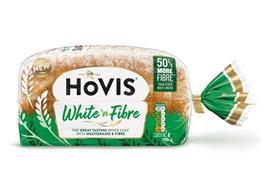
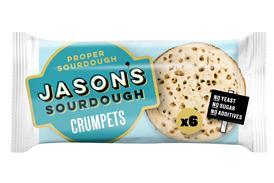


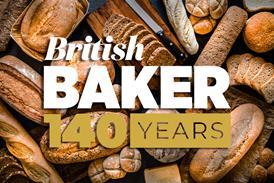



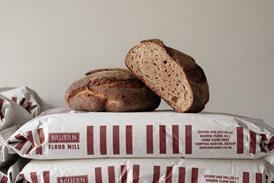







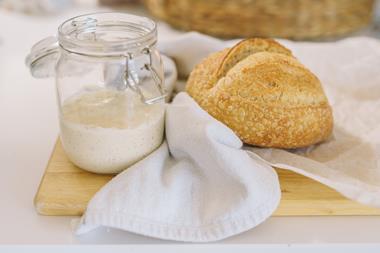




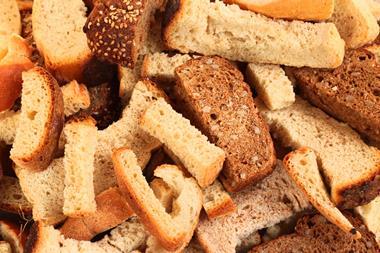





















No comments yet